Many people liked Obuda University at Tusványos as well
Once again this year, there was a significant amount of interest in Obuda University's booth at the Tusványos Free University and Summer Camp, held from July 19th to 22nd in Tusnádfürdő, Székely Land. The highlight of the event series was the exhibition by Obuda University, showcasing the award-winning works of the competition announced by the university, using motifs from the pottery of Korond.
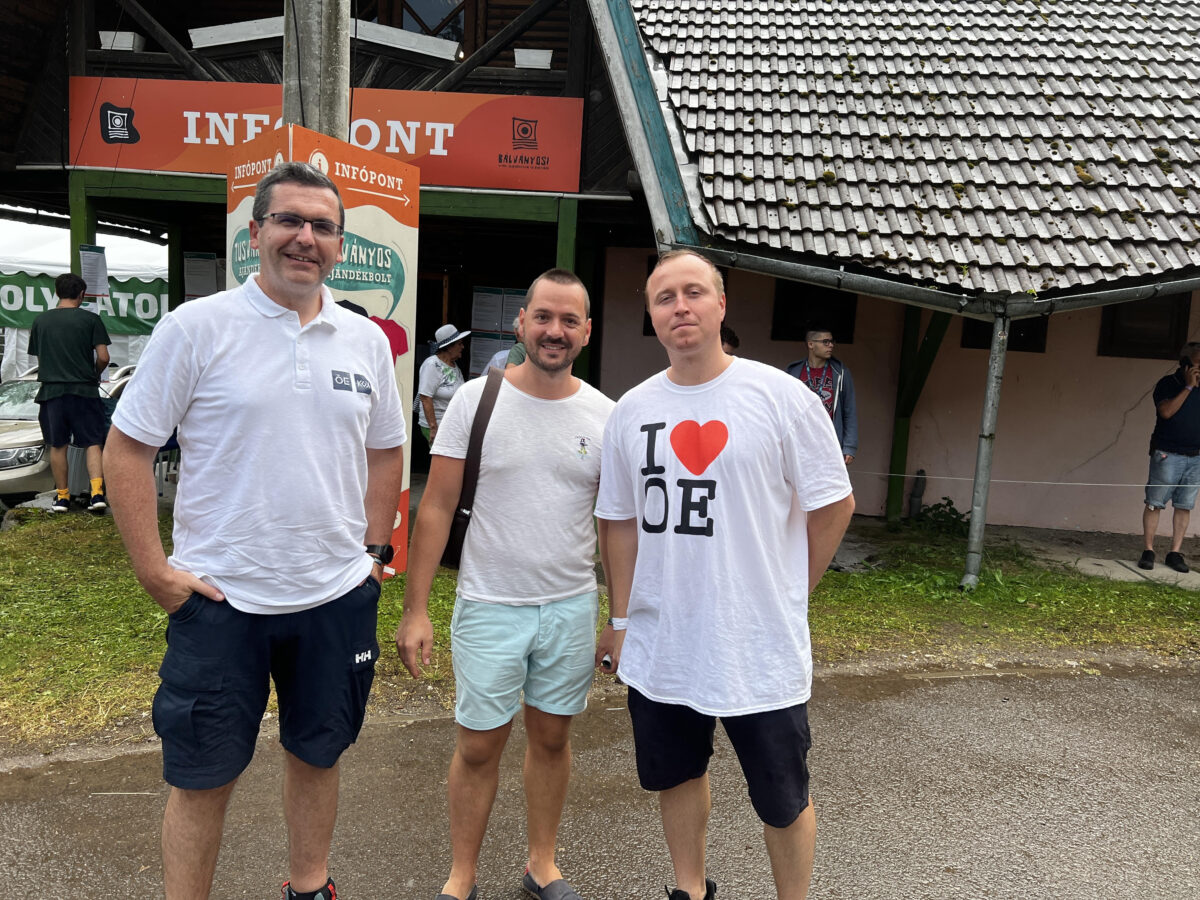
I Love ÓE
The members of the university team were available every day from morning until late afternoon to answer questions from those who approached them. This year, a significant number of young people living beyond the border, who intended to continue their studies at Obuda University, sought information from the representatives of the University Students’ Union (EHÖK). They showed interest in both undergraduate and master's programs - summarized the results of participation at the event Miklós Mezei, CEO of Óbudai Egyetem Nonprofit Zrt., and his colleague Henrik Csuzi. The university logo merchandise and "I love ÓE" T-shirts were once again highly successful this year. Upon request and following the instructions of the students from the Rejtő Faculty, the interested individuals received modified versions of the informative materials.
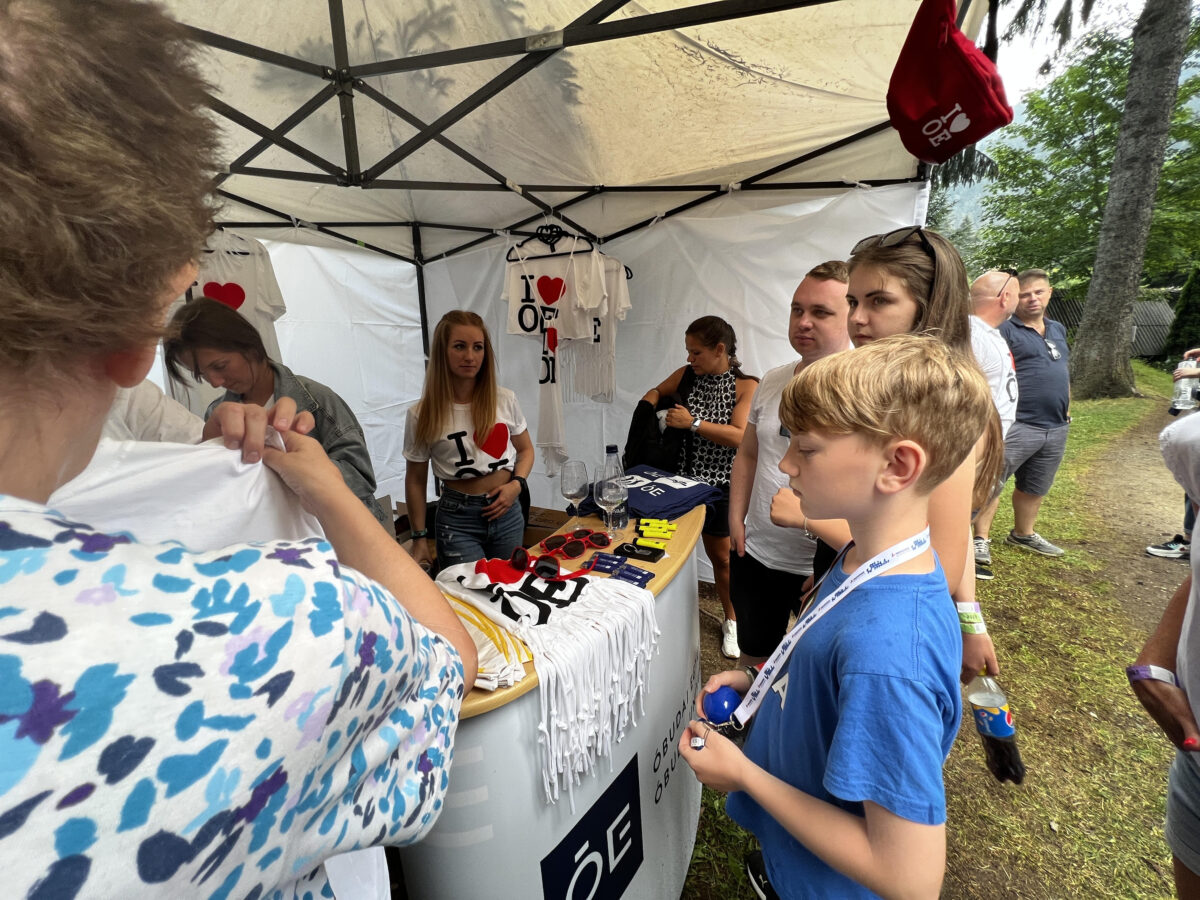
The role of universities in regional development
Not only through the education of professionals with up-to-date knowledge, but also through research and development, higher education institutions can contribute to strengthening the economic, cultural, and social fabric of the given region. This was emphasized in a roundtable discussion on domestic higher education, where Prof. Dr. Levente Kovács, Rector and member of the Hungarian Rector's Conference, represented domestic universities. Other participants in the discussion included Csilla Hegedüs, former State Secretary of European Funds Ministry (Romania), Dr. Tibor Navracsics, Minister of Regional Development, Dr. Balázs Hankó, State Secretary for Innovation and Higher Education, and Dr. Márton Tonk, Rector of Sapientia Hungarian University of Transylvania.
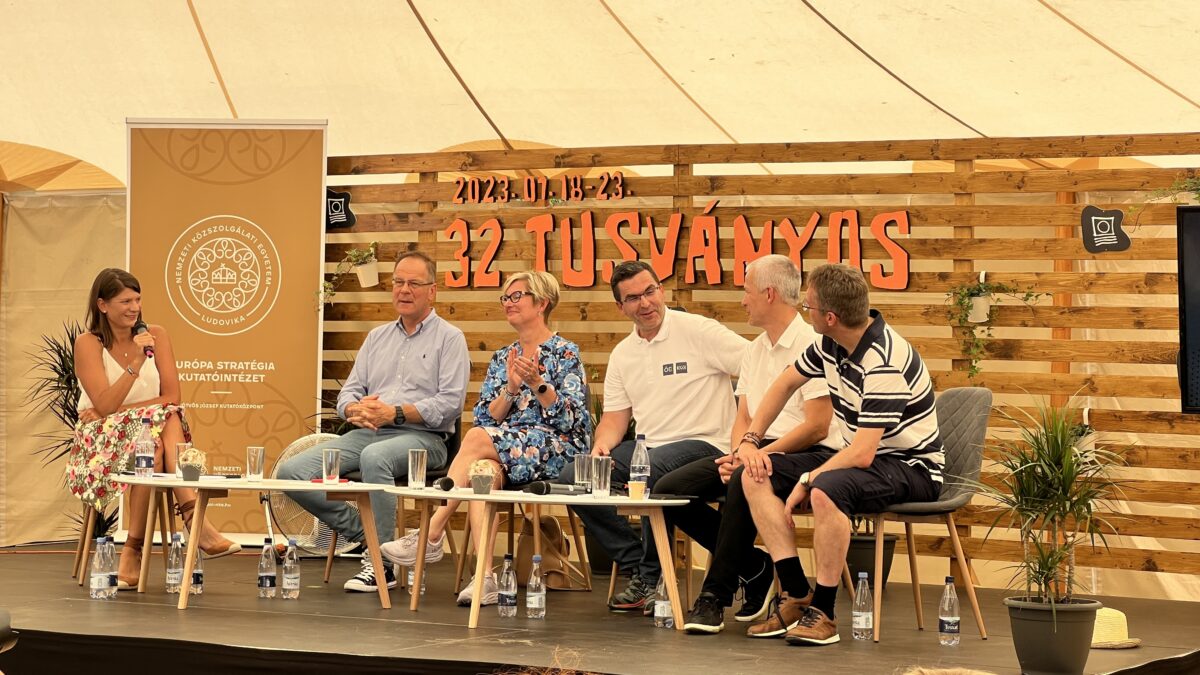
Today, the University is no longer merely a theoretical research center, not an ivory tower of knowledge, but an institution that increasingly needs to engage in the economic, scientific, and cultural life of the respective region, emphasized Tibor Navracsics.
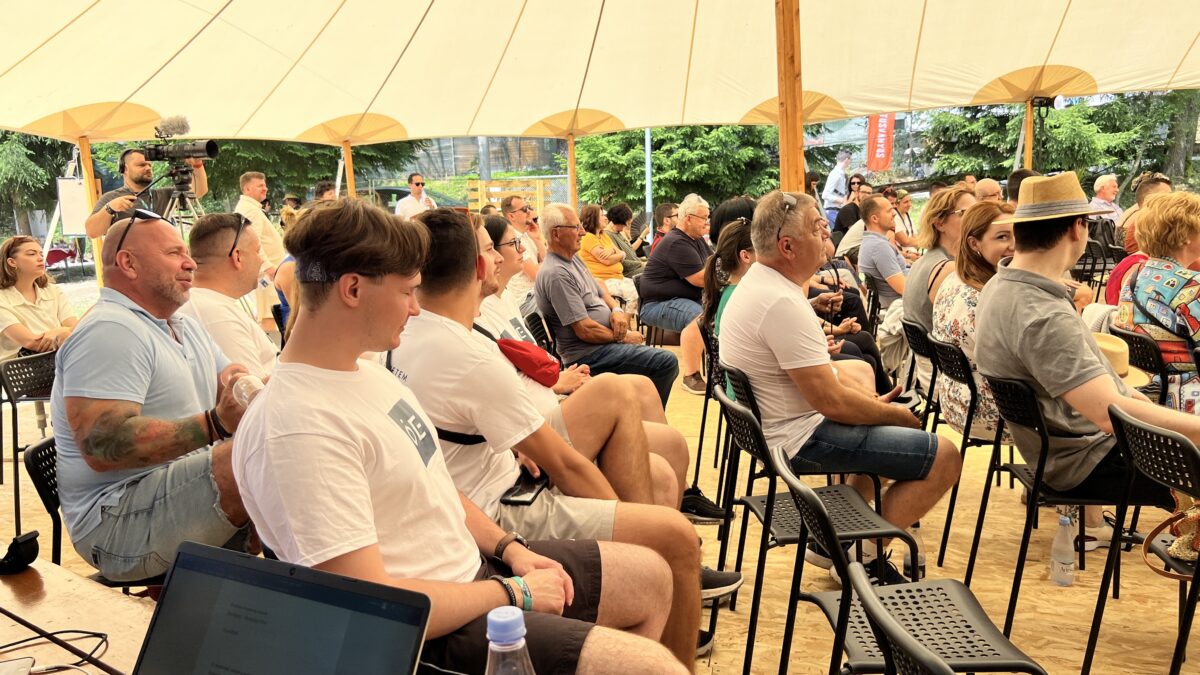
Prof. Dr. Levente Kovács pointed out that we are educating young professionals for the world of work, and this can only be done effectively if we can gather the regional demands.
From Idea to Product? Solution: Innovation Management
Innovation is crucial for our entire society. In order for an idea to become a useful product or service, it is essential that innovation channels function well, as emphasized by Prof. Dr. Levente Kovács during a panel discussion on innovation challenges in the Carpathian Basin. The discussion featured international lawyer Eszter Torda, Csaba Borboly, the President of Harghita County, and Péter Kristóf, Vice President of the Hungarian Innovation Association. Prof. Dr. Levente Kovács highlighted that Obuda University's new doctoral school provides essential education in innovation management. They aim to develop skills and expertise that enable ideas to be transformed into valuable products and services. According to the Rector of Obuda University, there is no shortage of ideas in Hungary, but there are numerous challenges in the execution process.
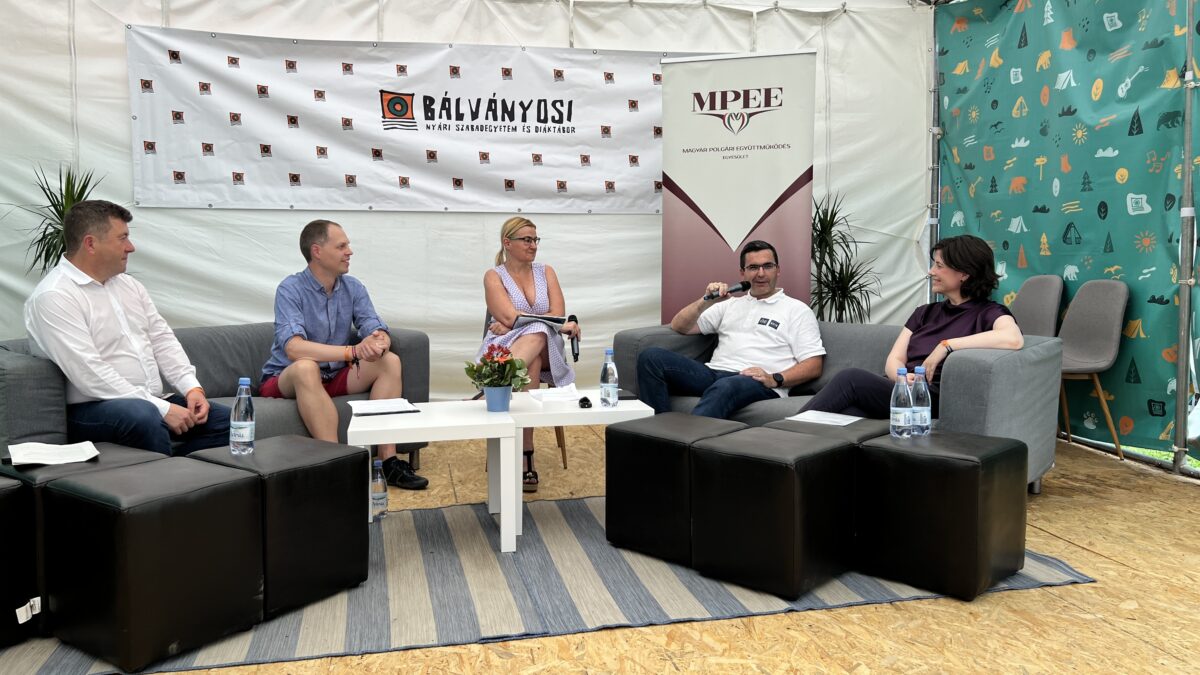
Tradition and Innovation – Beyond and Across Borders
As part of the project titled "Representation of Korond Motifs on Industrial and Representational Products," Obuda University organized an exhibition during the 32nd Tusványos Summer University. The exhibition showcased various works and announced results related to the project.
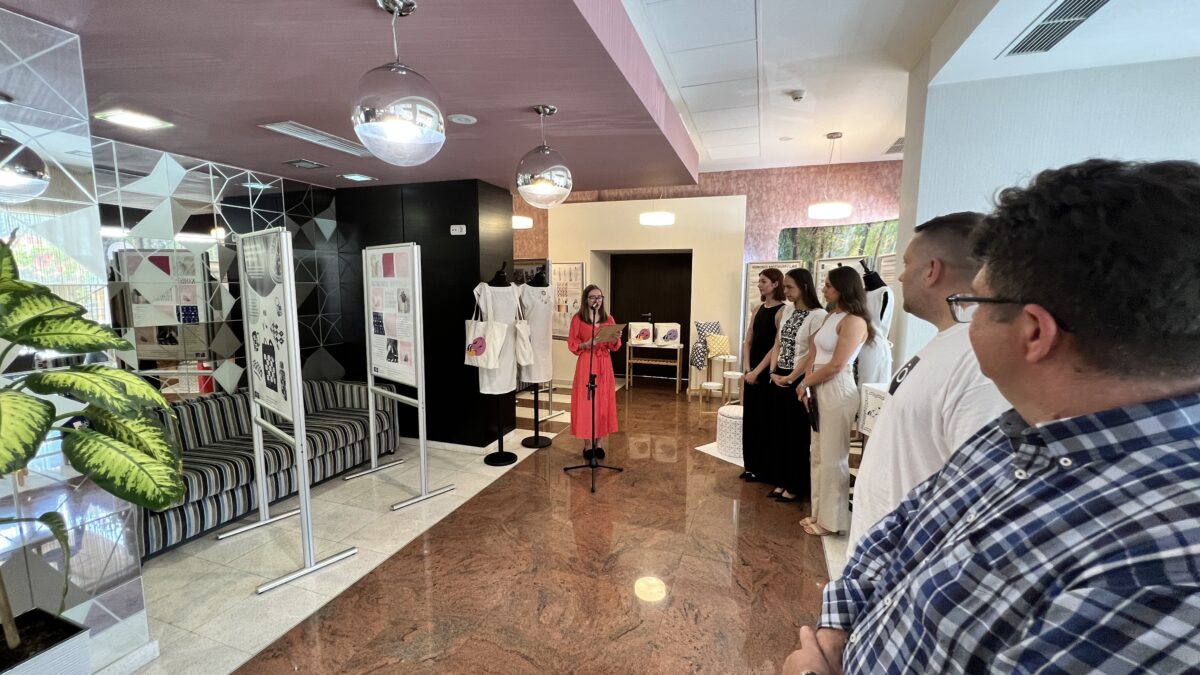
Fanni Martina, the employee of the Transborder Office of Obuda University and the project leader, stated that the preservation of the values of the Szekler Hungarian community is the goal, and the program aims for long-term expansion across the Carpathian Basin.
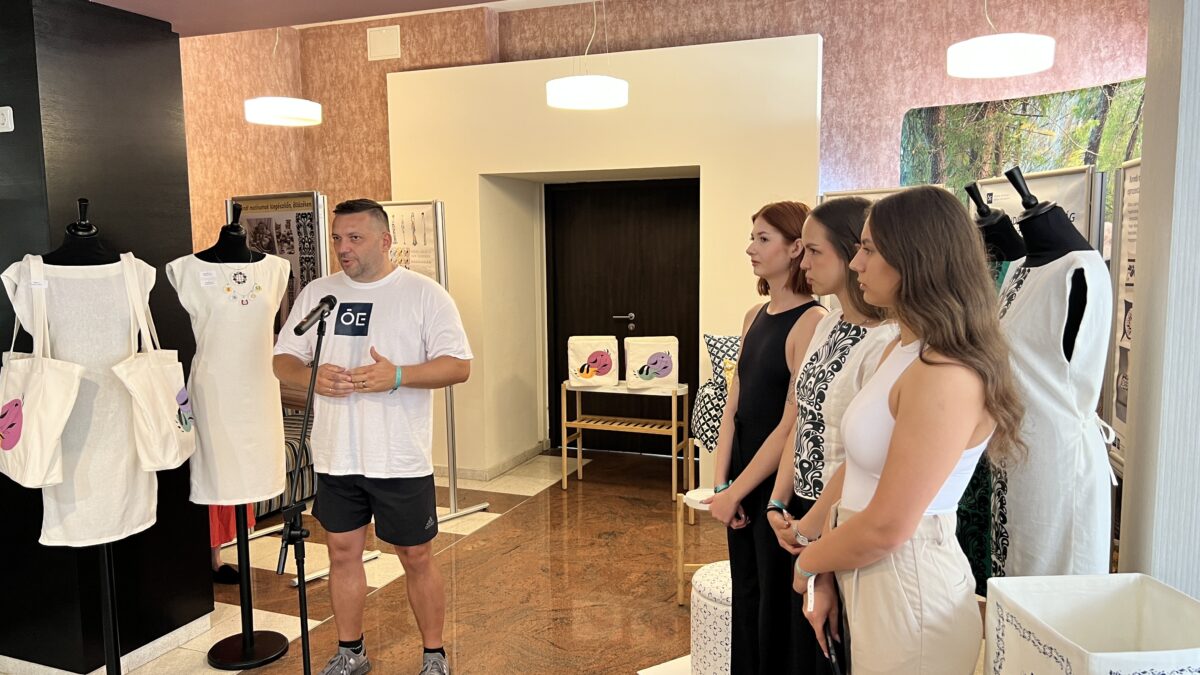
At the opening of the exhibition, Attila Molnár, the CEO of the Rudolf Kalman Foundation for Obuda University, emphasized that the Korond project is exemplary. It is both innovative and original, while also placing significant emphasis on preserving tradition.
Outstanding works were submitted to the competition - stressed Lajos Aáry-Tamás, Ombudsman for Educational Rights and professor at Sapientia University, at the opening of the exhibition. He added that minor miracles were born, highlighting the aim to spread the fame of Korond pottery as far as possible.

Initiated by Prof. Dr. Levente Kovács, the Rector, the project was launched, within which Obuda University's students announced a design competition. Martina Fanni provided information that the project aimed to incorporate the motifs, patterns, and stylistic elements of Korond ceramics into a utilitarian object or packaging that could fit into a modern interior. Nineteen students submitted their works, which were evaluated by Prof. Dr. Márta Kisfaludy, Dr. Krisztina Demény, Judit Józsa, and Dr. Dóra Papp-Vid.
In the first category, the first place was awarded to Adél Kárász, the second place to Sára Horváth, and the third place to Gitta Gubányi. The winner of the second category was Vivien Sődi.
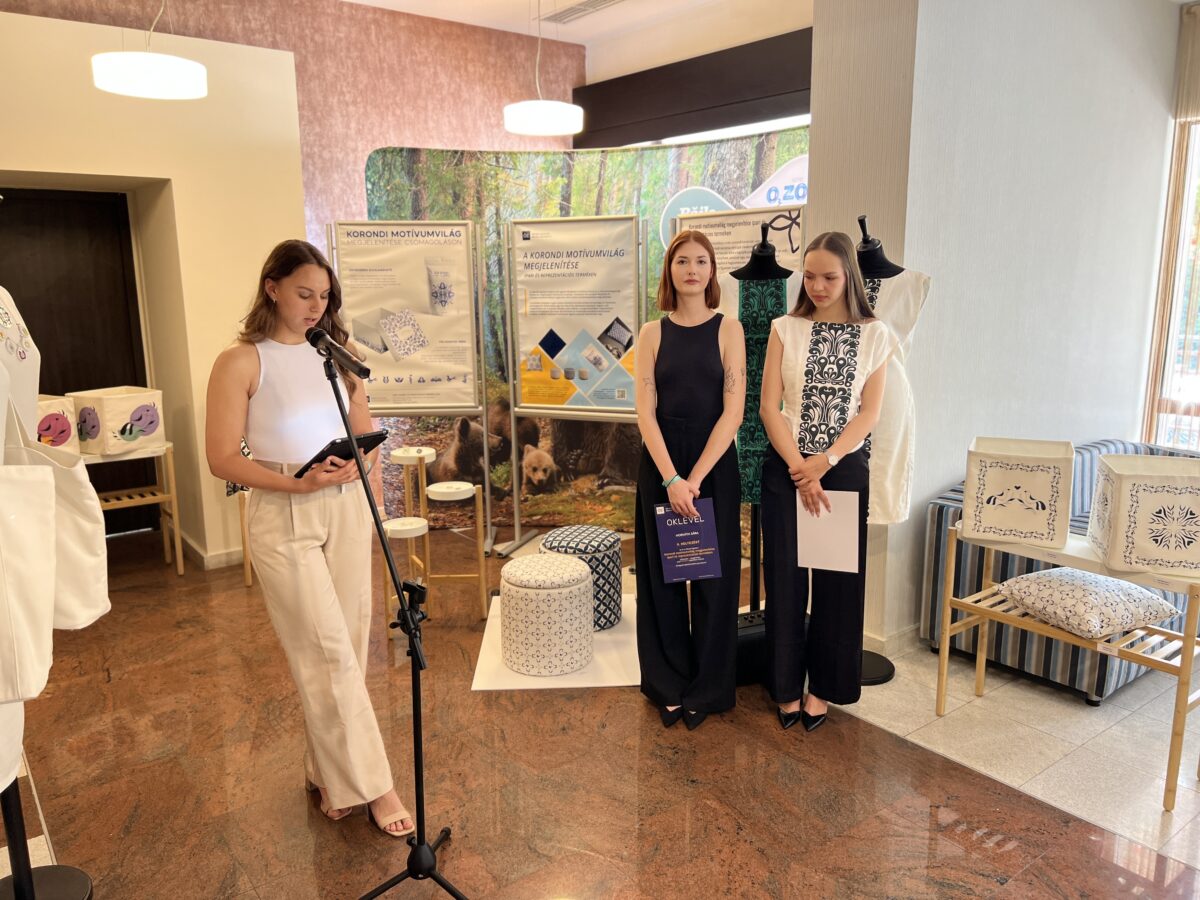
The students were guided by their instructors, including András Koleszár, Péter Gézáné Korona, and Dr. habil. Róbert Németh, from the initial design phase to the execution.
The award-winning students will have the opportunity to visit workshops in Korond in collaboration with Sapientia Hungarian University of Transylvania, where they can personally meet the master craftsmen and learn about Korond ceramics.




